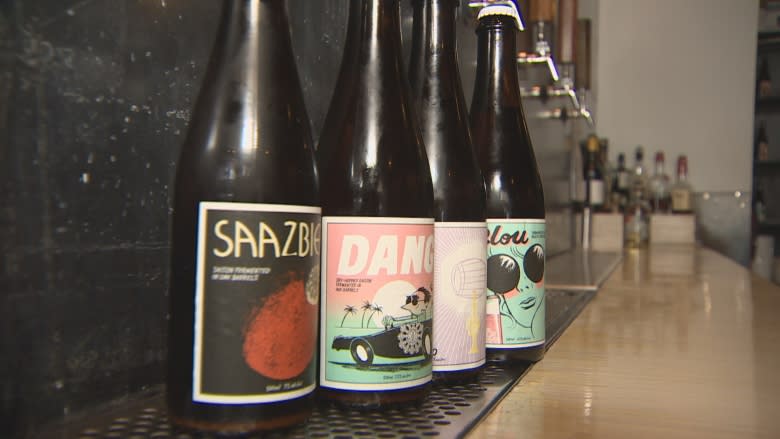Halifax bar watching imported alcohol case closely
The co-owner of a downtown Halifax, N.S., bar and brewery says he'll be keeping an eye on the Supreme Court of Canada ruling involving New Brunswicker Gerard Comeau.
Comeau was stopped for having imported too much alcohol from Quebec five years ago. If the ruling goes in Comeau's favour, Chris Reynolds believes it would be the beginning of the end of liquor monopolies in Canada.
"That's the hope. We all have our fingers crossed on that. At the very least it would mean that I could hopefully, freely buy beer from outside this province for our bar or for personal use," Reynolds, co-owner of Stillwell, told CBC News.
Potential end of liquor monopolies
Reynolds said ending liquor monopolies would be beneficial to businesses like his. The owners of Stillwell have a sister bar in Ontario but — because of trade barriers — Reynolds said it doesn't make sense to sell the company's Halifax-made beer there.
"As it stands now, the [Liquor Control Board of Ontario] has a stranglehold. They've only issued ... licenses for people to import kegs into that province and it's just not practical for us to do that right now," he said.
Stillwell sells beer from across the world, but Reynolds said it comes with a hefty price tag. He said Canada's Importation of Intoxicating Liquors Act means Nova Scotia owns all the alcohol within its borders and that costs the craft beer industry a lot of money.
"They basically tell us when to wake up in the morning, when to go to bed and they put taxes on imported things that are in the 100 per cent range. They do that and all of the other provinces do that as well. It's a huge money-maker for the provinces," Reynolds said.
'Incredible level of taxation'
When it comes to bringing in craft beer from other provinces, Reynolds said he has to do it through the Nova Scotia Liquor Corporation (NSLC).
"In the case of bottles, sometimes the NSLC or provincial government will earn more on that transaction than the family that brewed it or mine that sells it here," said Reynolds. "It's an incredible level of taxation and control that they have over all of the alcohol in the world."
Ending trade barriers would be helpful to business owners, Reynolds said.
"It would help us immensely, just from the practical point of being able to ship something from point A to point B without having to go through a bureaucracy. But also just financially. We all pay crazy amounts of tax on anything that moves through provincial borders right now," he said.



